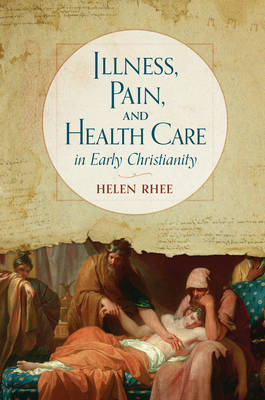
- Afhalen na 1 uur in een winkel met voorraad
- Gratis thuislevering in België vanaf € 30
- Ruim aanbod met 7 miljoen producten
- Afhalen na 1 uur in een winkel met voorraad
- Gratis thuislevering in België vanaf € 30
- Ruim aanbod met 7 miljoen producten
Zoeken
€ 57,45
+ 114 punten
Omschrijving
What did pain and illness mean to early Christians? And how did their approaches to health care compare to those of the ancient Greco-Roman world?
In this wide-ranging interdisciplinary study, Helen Rhee examines how early Christians viewed illness, pain, and health care and how their perspective was influenced both by Judeo-Christian tradition and by the milieu of the larger ancient world. Throughout her analysis, Rhee places the history of medicine, Greco-Roman literature, and ancient philosophy in constructive dialogue with early Christian literature to elucidate early Christians' understanding, appropriation, and reformulation of Roman and Byzantine conceptions of health and wholeness from the second through the sixth centuries CE. Utilizing the contemporary field of medical anthropology, Rhee engages illness, pain, and health care as sociocultural matters. Through this and other methodologies, she explores the theological meanings attributed to illness and pain; the religious status of those suffering from these and other afflictions; and the methods, systems, and rituals that Christian individuals, churches, and monasteries devised to care for those who suffered. Rhee's findings ultimately provide an illuminating glimpse into how Christians began forming a distinct identity--both as part of and apart from their Greco-Roman world.Specificaties
Betrokkenen
- Auteur(s):
- Uitgeverij:
Inhoud
- Aantal bladzijden:
- 367
- Taal:
- Engels
Eigenschappen
- Productcode (EAN):
- 9780802876843
- Verschijningsdatum:
- 22/10/2022
- Uitvoering:
- Hardcover
- Formaat:
- Genaaid
- Afmetingen:
- 160 mm x 235 mm
- Gewicht:
- 666 g

Alleen bij Standaard Boekhandel
+ 114 punten op je klantenkaart van Standaard Boekhandel
Beoordelingen
We publiceren alleen reviews die voldoen aan de voorwaarden voor reviews. Bekijk onze voorwaarden voor reviews.











